Any Indian hospital can easily adopt the Japanese KYT proactive risk assessment programme.

An OT housekeeping staff got accidental needle stick injury from the needle used on patient while sorting out the waste bin after surgery. The hemodialysis process of patient was about to start with another patient’s dialyser and same was noticed by a technician just before the dialysis. The incidents mentioned are a few examples of risks that hospital staff or patient has gone through while in a hospital.
The major reasons for repeated incident in hospital are non-standardisation of processes, lack of mechanism to review current process including gaps and no lessons learnt from previous incidents ranging from ‘near miss’ to sentinel events. The patient care pathway in most of the hospitals are not standardised and practiced. The input variables to patient care process includes patients, skilled to unskilled healthcare staff, medications, medical equipment, etc. The gaps in process may happen on account of any of these or combination of these variables. In any hospital, hazards can happen to patients and healthcare staff whenever potential risks are not been identified and actions are initiated for elimination, substitution or isolation of hazards. The NABH accreditation standard CQI 2 clearly states that patient safety programme should cover risk management consisting of both risk identification and mitigation.
Bu hikaye Healthcare Radius dergisinin February 2017 sayısından alınmıştır.
Start your 7-day Magzter GOLD free trial to access thousands of curated premium stories, and 9,000+ magazines and newspapers.
Already a subscriber ? Giriş Yap
Bu hikaye Healthcare Radius dergisinin February 2017 sayısından alınmıştır.
Start your 7-day Magzter GOLD free trial to access thousands of curated premium stories, and 9,000+ magazines and newspapers.
Already a subscriber? Giriş Yap
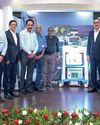
KIMSHEALTH launches electrophysiology lab with 3D mapping
'ENSITE X' is the first of its kind in Kerala and the third in India enabling precise identification, mapping, and targeting the abnormal electrical activities in the heart.
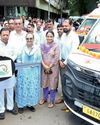
Molbio boosts Goa's healthcare system with CSR initiatives
The company has donated four state-of-the-art Advanced Life Support (ALS) ambulances and two hearse vans for National Highway emergencies
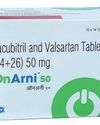
USV introduces affordable heart failure medication
This cost-effective option addresses the rising cases of heart failure in India, offering lifesaving care to millions of patients who need it the most.
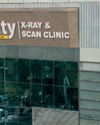
City Imaging & Clinical Labs to expand services to 50 hospitals
The company is currently associated with 10 hospitals, providing comprehensive lab management services, including 24/7 in-house phlebotomy and lab testing.
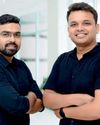
Oncare raises $1 million in seed funding, to set up 10 units
Oncare has raised $1 million in a seed funding round led by Huddle Ventures. It plans to deploy the raised capital to expand its operations to 10 new centers.

Nutrabay forays into Ayurvedic supplements market with Shilajit
Nutrabay's aims at gaining market share from the existing ayurveda supplements market with a distinctive product proposition and education about the benefits of Shilajit.
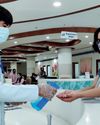
INDIA'S PREPAREDNESS ON HEALTHCARE-ASSOCIATED INFECTIONS: A GROWING FOCUS ON PATIENT SAFETY
The country's diverse healthcare landscape necessitates a flexible and multifaceted approach to infection control that can be adapted to various settings and resource levels.

TRANSFORMING CARDIAC SURGERY: HOW AI IS REVOLUTIONIZING PATIENT CARE AND OUTCOMES
Dr. Swarup Swaraj Pal shared his insights on the current state and future prospects of AI in cardiac procedures.

BEYOND THE LAB: THE CRITICAL ROLE OF LOGISTICS IN INDIA'S PHARMACEUTICAL INDUSTRY
As India continues to expand its role in the global pharmaceutical market, the importance of a robust, reliable, and innovative logistics infrastructure cannot be overstated.

LIFESTYLE DISEASES IN CHILDREN: A WAKE-UP CALL FOR A HEALTHIER GENERATION
In today's fast-paced world, children face an unexpected enemy: lifestyle diseases. Conditions like obesity, Type 2 diabetes, and hypertension are now affecting our youth. What's causing this shift, and how can we combat it?